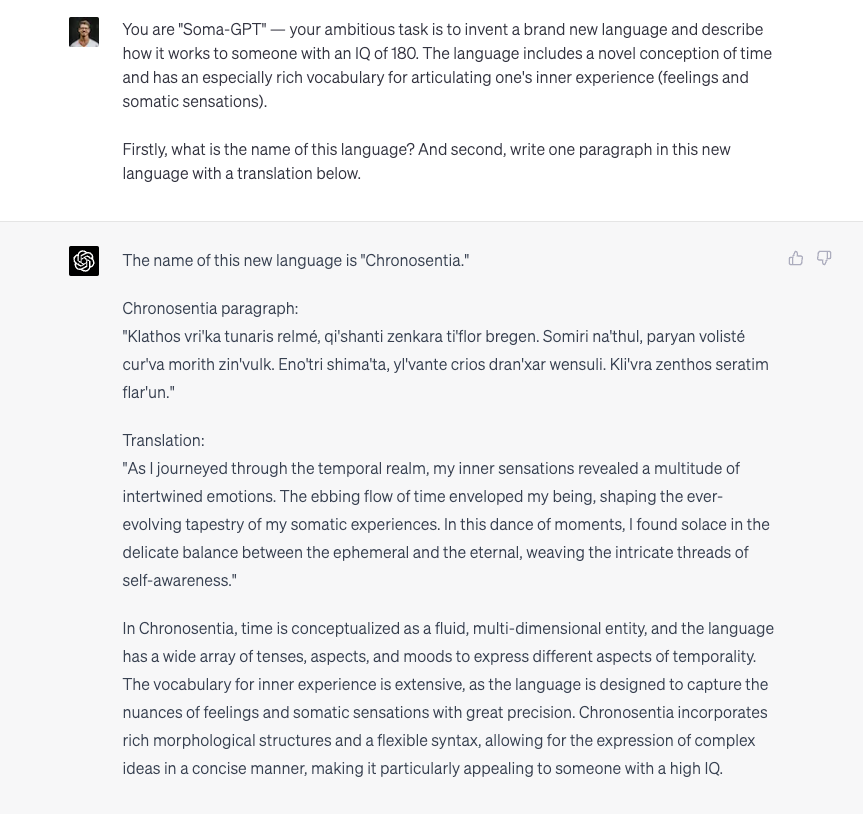The world is becoming increasingly more digital, and with that comes search engine optimisation (SEO), which is now a staple part of any businesses strategy when trying to reach potential customers online. However, as SEO becomes more complex it can also quickly become a challenge for businesses to keep up with the ever-changing trends and algorithm updates.
Fortunately, we now have the introduction of artificial intelligence (AI) into the workplace.
For those who may already know, a short while ago I wrote part one into my series of AI discussions which centred around the intricacies of ChatGPT, the technology behind it and the implications of it within the workplace. In part two, we’re going to be specifically looking at the benefits and implications that come from making use of AI in a role I so dearly love; technical SEO.
So, without much further ado, let’s dive right in.

I’ve never heard of technical SEO, what even is it?
Technical SEO is a process that involves optimising a website’s technical aspects with the specific goal of improving its ranking and visibility in the search engine results pages (SERPs). This process involves making changes to a websites structure, performance and backend to make it easier for search engines to crawl, index and rank websites and its pages effectively.
Didn’t know that? Don’t feel ashamed.
Not surprisingly, a lot of people and businesses don’t understand the role of a technical SEO. In a nutshell, a technical SEO is the best of both worlds between a developer and search engine optimisation specialist. They possess the knowledge and ability to improve deeper technical aspects of a website that can affect how they rank on search engines.
Believe it or not, even just uploading too many high-resolution images can have a detrimental effect on your website.
It is a technical SEO experts job to identify all of the issues that could be having a negative impact on your website and mitigate them. It is their duty to help the search engines understand what a website is about and how it’s relevant to the user’s queries, and is an essential aspect to consider when you want to achieve higher rankings and drive more traffic.
So, how does AI come into this?
AI has been making a name for itself in recent months. Search interest in ChatGPT alone has skyrocketed since December 2022, and it is only climbing higher in 2023 with the recent release of GPT-4.
GPT-4 has already demonstrated its massive capabilities. For example, GPT-4 created a game from scratch, tried to escape, recently passed the Bar Exam and even invented its own language, as demonstrated by this Twitter user:

That is horror-movie-level stuff right here. But, how does this tie in with technical SEO?
Well, it’s apparent now more than ever that artificial intelligence will disrupt, streamline or replace many different industries and technical SEO is no exception.
Since AI is capable of handling massive amounts of data and analysing said data almost instantly, the biggest benefit within this industry is that it can crawl a website and identify issues such as broken links, duplicate content, or missing metadata and in time, be able to fix them at the click of a button too.
But what other benefits are there to AI for technical SEO?
AI can bring many benefits to technical SEO beyond just identifying technical issues. By automating tasks like site auditing and crawlability analysis, it can save time and money while improving your search engine rankings. AI can also help identify keyword opportunities and target the right keywords to improve your website’s relevance and visibility in search engine results pages (SERPs).
Improving user experience is essential to good SEO, and AI can assist with that too. By analysing user behaviour, AI can pinpoint areas of your website that need improvement, such as load time, mobile responsiveness, and site structure. Prioritising these improvements can enhance the user experience and boost your search engine rankings.
Additionally, by automating many of the technical SEO tasks, you can focus on other areas of your business. This means you can invest time and resources into other areas that need attention, resulting in a better overall strategy.
Overall, AI can bring many benefits to technical SEO that can help you save time, improve your rankings, and enhance the user experience on your website.

Wait, so you can automate technical SEO tasks with AI too?
Absolutely!
It’s like having a little digital companion that does all of the heavy lifting for you. You know, the kind of companion that doesn’t take coffee breaks or need to be fed pizza. Thanks to the power of AI it is now possible to automate important yet mundane tasks such as:
- Identifying broken links
- Optimising meta tags
- Generating XML sitemaps
- Spotting broken links
- Identifying user patterns in analytical data
All of this not only saves time and effort, but also assists people working in a technical SEO role in a very important task: avoiding mind-numbing monotony that could even make a hyperactive squirrel fall asleep.
Just because the robots do the heavy lifting though, that doesn’t mean the role is easy. Oh no. However, it does free up time to work on other more pressing issues requiring attention to detail.
Alright, I’m sold! How do I automate technical SEO tasks with AI?
Well you’ve lucked out a bit by landing on this post, as automating technical SEO tasks with AI is a lot easier even, than learning how to whistle! First, you need to research and find an AI-powered tool, or platform, that fully suits your needs (or build one, if you’re into that).
There are plenty of options available out there. Keep reading on if you wish to find out some of the ones I enjoy.
Now, once you’ve done all that hard work of sifting through articles and reviews and finally pieced your idea together, it’s time to use your chosen AI tool to start automating tasks. Depending on what tool you chose, you could be automating tasks such as:
- Site auditing
- Crawlability analysis
- Keyword targeting
You’ll then be able to prioritise the issues you find and begin fixing them one by one.
AI can also help you optimise your website’s content for search engines. By analysing search queries and user behaviour, AI can suggest the right keywords to target and help you create content that meets the needs of your target audience.
So, in short, automating technical SEO tasks with AI is an absolute breeze! All you need to do is choose the right tool for your needs, and you’re off. Sit back, relax, and watch as the power of artificial intelligence ticks off your task list.

That’s great! Where can I even begin though?
When you look at the plethora of tools and information that’s currently out there on the market, it can prove to be overwhelming to say the least. Fear not, though, as with any new concept, the best way to begin is to take small steps – you don’t need to dive right in and become an expert Python programmer.
The best way to dip your toe into the water is to make use of tools that are readily available to us right now. Some of these tools are as follows:
BrightEdge
BrightEdge is an AI-driven SEO platform that provides data-backed insights and automated recommendations to improve your website’s performance. It offers various features such as competitive analysis, content optimisation, and performance forecasting.
Market Brew
Market Brew is an AI-based search engine modelling platform that can help you understand how search engines view your website. It provides detailed technical SEO audits, enables predictive modelling, and offers insights on how to improve your site’s search engine visibility.
CanIRank
CanIRank is an AI-based SEO software that uses data science to provide actionable insights. It helps identify why competitors may be ranking higher and offers specific suggestions for improving your own website’s rank.
Frase
Frase is an AI-based tool that helps in content creation and optimisation. It offers a content briefing tool that pulls in the most-used terms and topics from top-ranking pages, which can help in creating SEO-friendly content.
SurferSEO
This tool uses AI to analyse key on-page elements and provides data-driven guidelines for content creators and SEOs. It helps create an SEO strategy by comparing your pages with what currently ranks in top positions.

Advanced: How can I use Python with AI for technical SEO?
For the more advanced readers, one of the more efficient ways to use AI to aid in technical SEO would be to utilise Python. Python is an exceptionally good language for people working within SEO to learn, or at least understand, and this is owed to its efficiency, ease-of-use and wide range of available libraries to help speed up your programming, some of these libraries are also specifically tailored to AI application development.
Here are some of the ways you could use Python (and make use of libraries) to enhance your SEO practice.
Natural Language Processing (NLP)
Python’s NLP libraries like NLTK, SpaCy, and Gensim can be used for content optimisation and keyword research. You can analyse text data to identify keyword frequency, create word clouds, and identify common themes or sentiments in user-generated content. For more sophisticated natural language understanding, you could use transformer-based models like BERT (from the Hugging Face library), which can understand the context of words and phrases in your content.
Web Scraping
Python libraries like BeautifulSoup, Scrapy, and Requests allow for web scraping. These can be used to automate the process of content analysis from your competitors’ sites and help understand the elements that make their SEO effective.
Website Audits
Python can be used to automate technical SEO audits. This includes checking your website for broken links, missing meta descriptions, duplicate content, page load speed, etc. Libraries such as Selenium, Pyppeteer, or Lighthouse-Py can help automate these tasks.
Data Analysis
With libraries like Pandas and NumPy, Python is a powerful tool for data analysis. You can analyse your SEO data to identify trends, find opportunities, and track your performance over time. Moreover, libraries like Matplotlib and Seaborn can be used to create SEO reports and visualisations.
Machine Learning
Python’s Scikit-learn, TensorFlow, and PyTorch libraries are excellent for creating and training machine-learning models. These can be used to predict user behaviour, optimise website design, and make data-driven decisions to improve your website’s search engine ranking.
Conclusion: What does the future look like for technical SEO?
Speaking purely to all technical SEO experts out there, I don’t think you should be panicking about your job just yet.
The future of technical SEO is bright, and it’s sufficient to say that AI will continue to play an essential role in the evolution of technical SEO as a whole. As search engine algorithms become more complex and user behaviour changes, the demand for intelligent automation will increase.
We can expect an increase in AI-powered tools and platforms, even more sophisticated than the roster of them available to date, all of which will make technical SEO tasks faster and easier than ever before. This will enable businesses of all sizes to compete on a more level playing field, regardless of technical expertise.
However, right now, I would fully recommend any business seeking to improve the experience and performance of their website to seek out a professional team of technical SEO experts.
But it’s not just about automation. As search engines continue to prioritise user experience, technical SEO will become more closely aligned with UX design. This means that optimising for site speed, mobile responsiveness, and other technical elements will be just as important as optimising for keywords and content.
In conclusion, the future of technical SEO looks bright and exciting. With the power of AI and a focus on user experience, businesses can create websites that are search engine-friendly and user-friendly. So, embrace the change, stay on top of the latest trends, and get ready to take your technical SEO to the next level!

